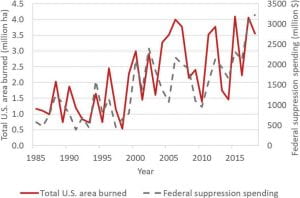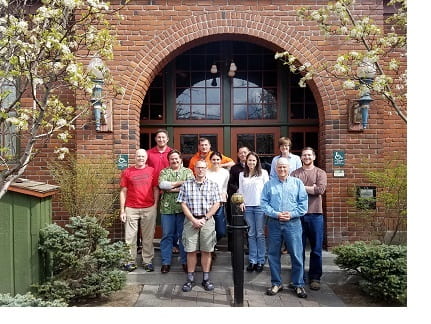 Congratulations to Dan Jaffe on his election to the Washington State Academy of Sciences (WSAS)! Jaffe was elected by members of the WSAS and recognized “for leadership in monitoring and understanding the global transport of atmospheric pollutants from energy production, wildfire, and other sources, as well as science communication and service that has informed citizens and enhanced public policy.” Jaffe has been at UW Bothell since 1997 and is also a professor at UW Seattle in the Department of Atmospheric Sciences. His research focuses on atmospheric chemistry, ozone photochemistry, wildfire smoke, and the long-range transport of pollutants. He has operated the Mt. Bachelor Observatory research station in Bend, Oregon, since 2004.
Congratulations to Dan Jaffe on his election to the Washington State Academy of Sciences (WSAS)! Jaffe was elected by members of the WSAS and recognized “for leadership in monitoring and understanding the global transport of atmospheric pollutants from energy production, wildfire, and other sources, as well as science communication and service that has informed citizens and enhanced public policy.” Jaffe has been at UW Bothell since 1997 and is also a professor at UW Seattle in the Department of Atmospheric Sciences. His research focuses on atmospheric chemistry, ozone photochemistry, wildfire smoke, and the long-range transport of pollutants. He has operated the Mt. Bachelor Observatory research station in Bend, Oregon, since 2004.
New members to the WSAS were chosen for “their outstanding record of scientific and technical achievement, and their willingness to work on behalf of the Academy to bring the best available science to bear on issues within the state of Washington,” according to the WSAS press release.
The WSAS is a not-for-profit organization that provides expert scientific and technical information to inform issues and public policy making in the state of Washington. It was established in 2005 and currently has over 300 elected members, all residing in Washington State.

 Datasets collected at Mt. Bachelor Observatory from 2004 to 2016 are now permanently archived and publicly available in the University of Washington ResearchWorks archive. The datasets include observations of ozone, carbon monoxide, mercury, nitrogen oxides, particulate matter and other atmospheric constituents. You can find the data by searching for Mt. Bachelor Observatory.
Datasets collected at Mt. Bachelor Observatory from 2004 to 2016 are now permanently archived and publicly available in the University of Washington ResearchWorks archive. The datasets include observations of ozone, carbon monoxide, mercury, nitrogen oxides, particulate matter and other atmospheric constituents. You can find the data by searching for Mt. Bachelor Observatory.